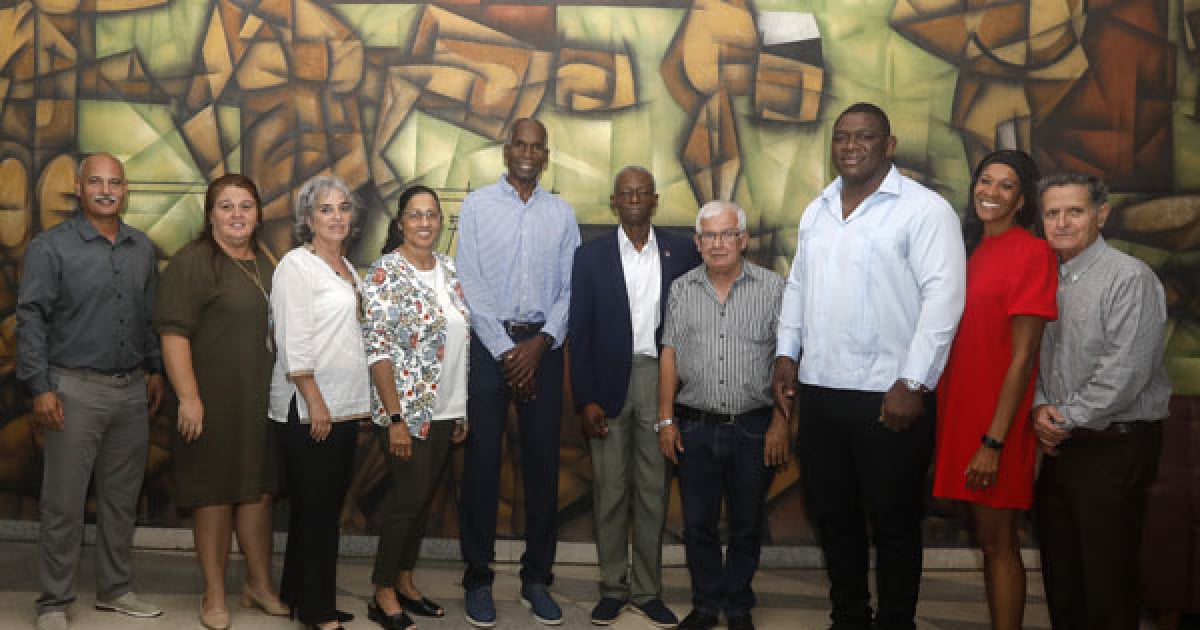The Cuban Olympic Committee (COC) has reported that the United States government has denied visas to its president, Roberto León Richards, along with other officials and athletes. This decision has barred them from taking part in international sporting events in the U.S. and Puerto Rico. According to a press release in JIT, the refusal also affected the COC's Secretary General, Ruperto Herrera Tabío, preventing him from attending the Panam Sports Executive Committee meeting held in Miami from May 13 to 15, as well as the Olympic Solidarity Forum in San Juan, Puerto Rico, shortly thereafter.
Moreover, María Caridad Colón Ruenes, the vice president of the COC and a member of the International Olympic Committee, was unable to attend the Panam Sports Women in Sport Commission session on May 5 in Miami due to the same issue. The COC emphasized that this incident isn't isolated. In March, visas were denied to 14 Cuban representatives for the World Masters Indoor Athletics Championships in Gainesville, Florida, reducing Cuba's participation to just two athletes. Similarly, the Cuban men's basketball team was unable to compete in the Fiba AmeriCup Nicaragua 2025 qualifier in Puerto Rico, leading to their automatic disqualification.
In typical fashion, the COC criticized the U.S. government's actions, labeling them as politically motivated and discriminatory, not only impacting sports but also the international Olympic spirit. "We demand adherence to the fundamental principles and commitments of Olympism, ensuring unrestricted participation of Cuban representatives in events hosted on U.S. soil," stated the COC in a release. Consequently, the COC has appealed to the International Olympic Committee, Panam Sports, and the U.S. Olympic and Paralympic Committee to intervene and halt these practices, which could jeopardize Cuba's full participation in the Olympic cycle leading to Los Angeles 2028.
Beyond Sports: A Widespread Practice
Recently, students from Cuba's National School of Art were excluded from a cultural exchange in the U.S. following visa denials, amid increasing migration restrictions affecting educational and cultural ties between the two nations. According to The Berkeley High Jacket, a student newspaper, the event was part of an exchange project that has long facilitated visits by Berkeley High School's jazz program students to Cuba for collaboration with their Cuban counterparts at ENA.
Additionally, the U.S. has refused visas for officials of the Cuban regime and suspended applications in various categories, including culture, health, education, science, and sports, as noted by Cuban Deputy Foreign Minister Carlos Fernández de Cossío in statements to AP.
U.S. Embassy Tightens Visa Controls in Cuba
The U.S. Embassy in Havana has intensified its criteria for granting visas under the family reunification program, against a backdrop of mounting migration restrictions. Mike Hammer, Chargé d'Affaires at the Embassy, confirmed this during a press briefing in Miami. Questions arose concerning the urgency of revitalizing the family reunification program, a legal pathway that has enabled thousands of Cubans to reunite with their loved ones in the U.S.
In response, Hammer stated, "Family reunification is a sensitive issue, and the Trump administration's policy on illegal immigrants in the country is well-known. However, our Embassy remains committed to reuniting families through a legal process." Nonetheless, this mission faces tangible obstacles. The diplomat confirmed that U.S. immigration laws are being applied more stringently to prevent visas from being issued to individuals with recent ties to the Communist Party of Cuba (PCC).
"Yes, we are enforcing U.S. laws that prohibit granting visas to former high-ranking members or recent affiliates of the Cuban Communist Party," he confirmed.
Key Questions on U.S. Visa Policies Affecting Cuba
Why did the U.S. deny visas to Cuban Olympic Committee members?
The U.S. denied visas to Cuban Olympic Committee members citing political motivations and stricter enforcement of immigration laws against individuals with connections to the Cuban Communist Party.
How has visa denial affected Cuban athletes?
Visa denial has prevented Cuban athletes from participating in international events in the U.S. and Puerto Rico, affecting their opportunities and competition outcomes.
What steps is the Cuban Olympic Committee taking in response?
The Cuban Olympic Committee is urging the International Olympic Committee and other sports organizations to intervene and ensure the unrestricted participation of Cuban representatives in events held in the U.S.
